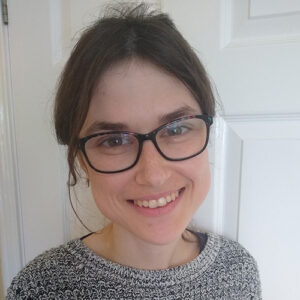My journey into writing poetry as an adult wasn’t straightforward. I’d written a lot as a child, albeit mainly stories – I think this is reflected in how often even my shorter poems carry a strong narrative drive. I stopped writing creatively in my teens, and lost the ability to write prose easily about halfway through my degree. I started writing poetry seriously in my late 30s; it helped me deal with a major upheaval in my life, and was a way to connect back to an abandoned part of me, the part that both loves and has a facility for the act of putting words together in an engaging way.
I don’t tend to write formal reviews very often, though for the past ten years I’ve often done what I call micro-blogging, where I write an extended post for my Facebook page on a particular poem or collection that I’ve been reading. I think that whenever I write prose about poetry I’m aiming to draw people’s attention to something in a writer’s work – whether it’s an individual poem, or a theme running through a collection – that might have escaped people’s notice. I want to offer some kind of fresh perspective, in the hope that it sends the reader back to the text in question, which I think should be the basic aim of any critical writing on poetry. Also, whatever perspective I have needs to be grounded in the way the writer is shaping language – how are they using the resources of rhythm and sound, how are they breaking the line, are their images truly working in the service of the poem? A single line that acts as a good example of all this for me would be the opening of ‘Morning Song’ by Sylvia Plath – “Love set you going like a fat gold watch.”
I wish I could remember which European writer it was who said that the only thing they hated more than writing was not writing. This is definitely true for me with prose – poems, in contrast, tend to push just about everything else out of the way when they arrive. My distractions are many and varied, although YouTube and the websites for The Guardian and ESPN Cricinfo feature prominently. I’m fortunate in that I have a 50-minute there-and-back walk through green space right on my doorstep, and taking advantage of that is the best way to ensure that I’ll actually write something when I’m back at my desk.

